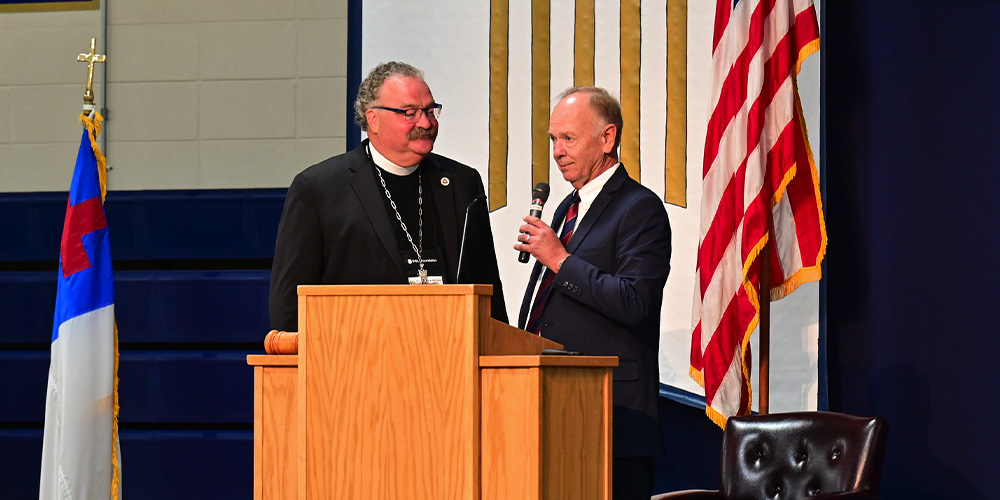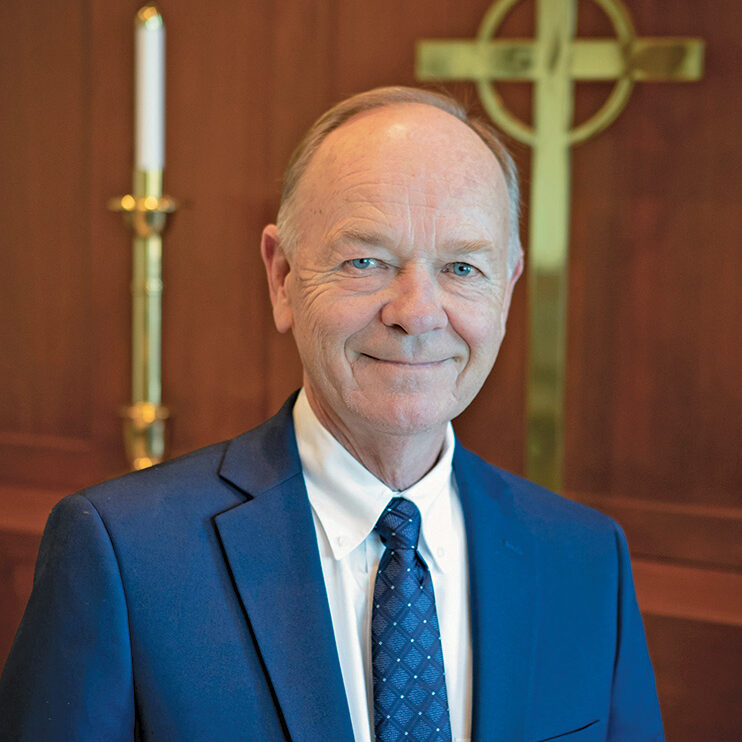 |
Sixty years ago, our synod was faced with the most difficult decision in its history. For more than 20 years, WELS and the Evangelical Lutheran Synod (ELS) had been working to convince their sister church body, the Lutheran Church–Missouri Synod (LCMS), that it had departed from the biblical doctrine it had previously held. When the LCMS made it clear that it would not heed those loving admonitions, WELS’ 1961 synod convention was compelled to suspend the fellowship that had existed for nearly a century.
The resolution included the noteworthy phrase “suspend fellowship,” rather than “terminate fellowship.” A footnote explained, “The word suspend used in the resolution has all the finality of termination . . . but contains the hope that conditions might some day warrant the reestablishment of fellowship.” In keeping with that understanding, it was then resolved that “under conditions which do not imply a denial of our previous testimony, we stand ready to resume discussions with the LCMS with the aim of reestablishing unity in doctrine and practice.” Even as our synod acknowledged that fellowship no longer existed, it expressed the hope that at some point unity could be restored. WELS was willing to hold discussions for that purpose, but for the next 50 years, those discussions did not materialize.
Ten years ago, WELS and the ELS determined that the time was right to begin discussions with the LCMS. Even though there was no indication that full agreement in doctrine could be established, the meetings would enable the two sides to understand clearly the doctrinal positions of the other and to remove any misunderstandings or caricatures that had developed over the years. The tenth annual meeting will take place this December.
While WELS is not at the point where it can say that unity in doctrine and practice exists or will happen in the foreseeable future, there have been some clear benefits to these meetings:
- These meetings have helped the three synods clarify beliefs and doctrinal positions, enabling the three synods to identify where real differences remain.
- The meetings have permitted the leaders to get to know their counterparts firsthand, allowing them to develop an appreciation and respect for one another as well as offer encouragement in their efforts to be faithful to the Word of God.
- These meetings have opened up lines of communication that enable the synods to consult with each other in matters of mutual concern and interest. For example, leaders in WELS World Missions are able to consult with their counterparts in the LCMS to discuss mutual challenges. In areas that do not involve church fellowship, WELS has been able to work with the LCMS, including participating as a “friend of the court” in legal proceedings dealing with religion freedom issues.
- These meetings give WELS leaders the opportunity to answer and confess when LCMS representatives sincerely ask what WELS believes and practices and why. “Always be prepared to give an answer to everyone who asks you to give the reason for the hope that you have” (1 Peter 3:15).
Like the delegates to the 1961 convention, we pray for the day when fellowship between our synods can be restored on the basis of the Scriptures. That day is not yet here, and it’s not likely near. But we can—and should—continue to work toward that God-pleasing goal.
Author: Mark Schroeder
Volume 108, Number 12
Issue: December 2021
- The mission of WELS schools
- Blessings in tragedy
- Confusion or comfort?
- Never take it for granted
- A season of miracles
- Don’t miss the point
- Another humbling experience
- Our cross and crown
- The public ministry and the divine call
- No fear of bad news
- Big challenge, bigger blessings
- Our worldwide fellowship
- Seize the opportunities
- The Lord takes care of his church
- Savor the rain
- Up close and personal
- It’s never too early
- Thanks for not giving
- Hope for the future
- Our task is not over
- Update on WELS’ effort in Vietnam
- More workers for a bountiful harvest
- 150 years of fellowship
- A unique system of schools
- God’s cure—for everything
- Lenten repentance, Lenten appreciation
- Pray for us
- Plan with wisdom and faith
- Purposeful discussions
- Upholding biblical values
- President’s message: To judge or not to judge
- President’s message: A field ripe for harvest
- President’s message: Thoughts about the new hymnal
- President’s message: Cooperating in externals
- President’s message: Canceling the cancel culture
- President’s message: Making normal a reality
- President’s message: The fields are ripe for harvest
- President’s message: The end of the story
- President’s message: Blessings small and large
- President’s message: Standing on the truth
- President’s message: Peace on earth—but what kind?
- President’s message: Thankful—even now?
- President’s message: More than dollars and numbers
- President’s message: A time for trust
- President’s message: Future unknown, future certain
- President’s message: God’s work does not stop
- President’s message: A lesson to be learned
- President’s message: Having the right tools
- President’s message: What kind of leaders?
- President’s message: What’s love got to do with it?






